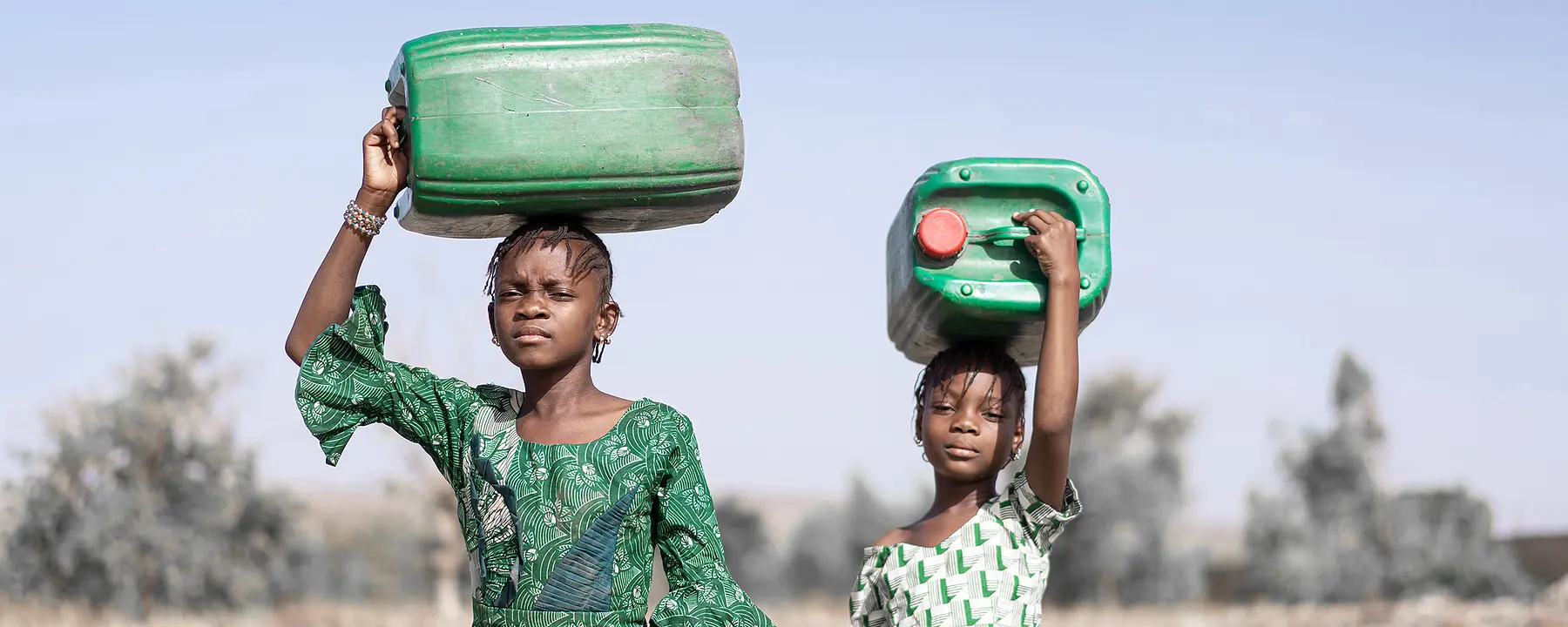Supporting the social, political, and economic infrastructure for reliable, high-quality WASH Services in Zambia
Objective
The USAID Expanding Water and Sanitation Project aims to support the professionalization of WASH services, increase private sector engagement (PSE) in service delivery, and improve accountability among citizens, service providers, and policymakers.
Approach
To support expanded water service delivery to rural communities, the project will provide technical assistance and capacity building to commercial utilities and will introduce regulatory reforms to facilitate PSE.
Impact
- Institutionalize market-based WASH service delivery and build financially sustainable and inclusive management models.
- Increase the accountability of WASH service providers, policymakers, and civic leaders.
- Support policy and regulatory reforms.
- Increase private sector participation in WASH in Zambia.
The Need for Improved WASH Performance in Zambia
While Zambia has a rich history of WASH governance and a well-defined institutional framework, the performance of its water service delivery remains weak, leaving citizens with inadequate access to sanitation and fostering an inefficient market. Against this challenging backdrop, the Republic of Zambia’s decision to expand commercial utilities’ WASH mandate to include a rural service provision has opened an unprecedented window of opportunity—one which the USAID Expanding Water and Sanitation Project (USAID Expanding WASH) intends to leverage in service of developing opportunities for historically underserved populations to have access to inclusive, sustainable, and high-quality WASH services.
Our Approach to WASH Program Strategy in Zambia
With an approach rooted in USAID’s Local Solutions Framework, which aims to strengthen social accountability within complex, dynamic local systems, we will employ a flexible and responsive strategy that links supply with demand side governance. By professionalizing WASH services in Zambia, this work will both increase the social accountability surrounding reliable and high-quality WASH services, and improve the enabling environment for private sector engagement in service delivery. The new standard of civil society engagement that these efforts will foster will hold key stakeholders accountable in addition to furthering the government’s mission to provide high quality WASH services to its citizens.
So, how can a single WASH project make sustainable long-term improvements to the number of people who have access to water and sanitation in Zambia? For USAID Expanding WASH, the answer lies in three crucial elements:
- Increasing social accountability and demand
- Building an enabling environment
- Increasing private sector engagement
Increasing Social Accountability and Demand
The commitment to professionalizing WASH services and ultimately supplying new access to water and sanitation involves engagement with two crucial parties: the service providers (either commercial utilities or the private sector) and the customers. And yet, working with service providers to establish minimum quality standards that market-based services must adhere to, and ensuring that these quality services are reaching customers, is only one side of the equation. Customers must be able to expect quality and consistency and feel empowered to demand improvements. Ultimately, we will define success through increased shared value in, and demand for, services, as visible through increased social accountability throughout the market.
Operating in peri urban areas, rural growth centers, and rural communities, we will conduct comprehensive market analyses to determine which districts, communities, or private sector stakeholders would be best candidates for partnership. To reinforce existing local capacity, this work will build on current management models, and prioritize improving existing infrastructure—drilling or rehabilitating boreholes, installing water taps and small piped water schemes, and improving on-site sanitation. By increasing the shared value placed in local systems we will establish them as a foundation to scale up a structured delegation of authority within the supply chain, cultivating a market system that equips citizens—as constituents and as customers—with the necessary tools to not only access services, but also hold service providers accountable to a higher standard of quality.
Building an Enabling Environment
Long-term success of an updated WASH infrastructure depends on having updated policy, regulatory, and legislative frameworks that both reflect local stakeholder priorities, and develop an enabling environment for market-based services. Encouraged by the reality that the last two decades of WASH sector reforms in Zambia have established the components necessary to build social accountability, the USAID Expanding WASH project will continue to seek out opportunities to leverage existing government policy—including the National Water Supply and Sanitation Policy of 2020 and the Sustainable Development Goals—that encourage an enabling environment for continued improvement in the WASH sector.
Engaging the Ministry of Water Development and Sanitation (MWDS) will also be a crucial component of our work, to ensure that key opportunities to expand on private sector engagement or other reforms to expand access to water and sanitation are prioritized. As the enabling environment improves through implementation, these partnerships will strengthen and expand, establishing local actors as crucial players in the scaling of WASH services and their impact.
Increasing Private Sector Involvement
Many efforts have attempted to address the issue of WASH access in Zambia from different angles, with private sector engagement remaining an elusive crucial piece to the puzzle. While the Water Supply and Sanitation Act of 1997 enabled expanded private sector management and even ownership of Commercial Utilities (CUs), a more effective long-term approach is one that instills a sense of shared value across the market, by engaging businesses and private operators in investment partnerships, performance, management, and service contracts that complement commercial utility capacity.
Using WASH data and lessons learned surrounding critical components of sustainable service delivery and performance, we will support local private sector partnerships that can eventually assume full responsibility over service provision. Thorough monitoring, evaluation, and learning processes will also be critical throughout the project in maximizing the effectiveness of each intervention—allowing us to identify and share entry points, identify stakeholder priorities, and inform best practices for future adoption across the private sector.
The Future of Water Sanitation in Zambia
Understanding that the establishment of lasting local partnerships and social accountability is foundational to our success, this work will disseminate management within local counterparts, thus laying the groundwork for customer trust within Zambia’s WASH system. Removing barriers to market-based service delivery, leveraging resources through shared ownership and responsibility, and bridging local with district level priorities, will serve to both maximize, and solidify the permanence of, our impact. Through the life of the project, these efforts will help to foster a robust, cost-effective market, solidifying the role of the private sector as that of a self-sustaining socially accountable service provider, and Zambian citizens as empowered consumers.
- U.S. Agency for International Development (USAID)
- SNV Netherlands Development Organisation
- Water and Sanitation Association of Zambia (WASAZA)
- Planet Partnership




